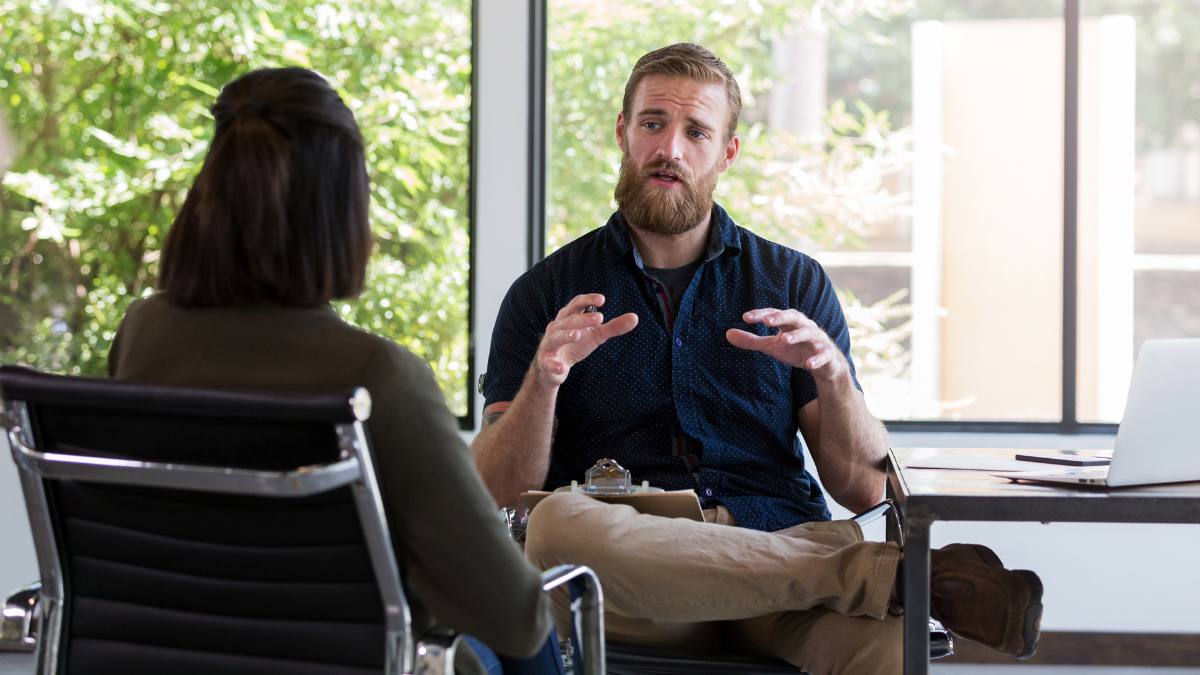Common Addiction Recovery Questions and Answers
Those who have a loved one struggling with addiction or those who are struggling themselves often need help understanding addiction. Addiction is a complex medical condition, and the most effective treatment options look different for everyone. At Lexington Addiction Center, we have compiled a comprehensive list of common addiction recovery questions and answers. Contact us directly with any additional drug addiction questions or to learn more about our effective addiction treatment program.
What is Considered Addiction?
This is one of the most difficult questions about addiction to understand. According to the American Society of Addiction Medicine, addiction is a chronic, progressive, and treatable medical condition. It is characterized by my obsessive and compulsive need and desire to use substances that are harmful to my health and overall well-being.
Addiction vs Dependence
While addiction and dependence are terms often used interchangeably, they refer to different aspects of substance use. For instance, addiction is a chronic, relapsing disorder characterized by compulsive drug seeking and use despite harmful consequences. It involves psychological elements such as cravings and an inability to control substance use.
Dependence, on the other hand, refers to a physical state where the body has adapted to the presence of a drug, leading to tolerance (requiring more of the drug to achieve the same effect) and withdrawal symptoms when the drug is reduced or stopped. While dependence can occur without addiction, addiction often includes physical dependence.

Is Addiction Hereditary?
When addressing addiction recovery questions and answers, it is important first to understand the source or root cause of the addiction. Many studies have been conducted on the connection between genetics and addiction to drugs and alcohol. There is ample evidence to support the way that genetics impact the risks of developing an addiction to substances.
While genetics may increase the risk of substance abuse, it doesn’t mean that one is doomed to addiction. Environmental factors also play into the potential for developing addictions. Here are some key distinctions between hereditary and environmental factors:
Hereditary Factors of Addiction:
- Genetics: Family history of addiction indicating a genetic predisposition.
- Neurobiology: Variations in brain chemistry and function.
- Inherited Traits: Personality traits such as impulsivity and risk-taking.
Environmental Factors of Addiction:
- Peer Pressure: Influence from friends or social groups.
- Stress: Chronic stress or traumatic experiences.
- Access to Substances: Easy availability of drugs or alcohol.
- Family Dynamics: Family conflicts, lack of support, or parental substance use.
- Socioeconomic Status: Poverty, unemployment, or lack of education.
Can an Addict Recover Without Help?
It is generally recommended that a person struggling with addiction seek assistance from healthcare providers or addiction specialists who can answer common addiction questions. Additionally, they can offer a comprehensive treatment plan that may include medical detoxification, counseling, medication-assisted treatment, and behavioral therapies, which are crucial for addressing the root causes of addiction and preventing relapse. In addition to answering questions about addiction, professionals can provide the necessary resources and support.
While 12-step groups and determination play significant roles in recovery, treatment increases the chances of long-term success. Furthermore, addiction affects not just the individual but also their family and close relationships. Professional programs often include family therapy, which helps to repair and strengthen these relationships, an essential component of a sustainable recovery.
What is Dual Diagnosis?
Dual diagnosis is when someone struggles with both mental health and substance abuse or addiction simultaneously. This can mean that a person struggles with alcohol or drugs and also suffers from depression or anxiety. The impacts of drugs and alcohol on mental health can be severe.
While initially it may seem like the substances are alleviating the symptoms or mental health conditions, in the long run, the substances will severely impact how these conditions affect the person who is struggling. Often, conditions like depression and anxiety can be exacerbated by the use of drugs and alcohol.
On the other end of the spectrum, a person who is struggling with mental health could turn to using drugs and alcohol as a means of coping. This can lead to dependence and addiction to the substances. Thereby, making it difficult to address either condition without the proper care. Dual diagnosis treatment helps by addressing both mental health and addiction simultaneously to achieve long-lasting recovery.
How Do I Know If Someone is Addicted to Drugs?
Some of the most common addiction recovery questions and answers are how to know if someone is struggling and how to get them into treatment. Addiction is characterized by compulsively seeking and using drugs despite negative consequences. If there is concern regarding use in a loved one, this can be the easiest way to know if a person is struggling.
Understanding addiction comes with knowing how to identify if someone is struggling with drugs or alcohol. If a loved one is obsessively using and seeking drugs or alcohol, this can be indicative of a potential problem with the substances.
Here are some common signs that someone is addicted to drugs:
- Cravings: Intense urges to use the drug.
- Loss of control: Inability to stop or limit drug use.
- Neglecting responsibilities: Ignoring work, school, or family obligations.
- Risky behaviors: Engaging in dangerous activities to obtain or use the drug.
- Withdrawal symptoms: Experiencing physical or mental symptoms when not using the drug.
- Increased tolerance: Needing more of the drug to achieve the same effect.
- Isolation: Withdrawing from social activities and relationships.
- Financial problems: Spending significant amounts of money on the drug.
What is Medication-Assisted Treatment?
Medication-assisted treatment, or MAT, is the use of medication in combination with behavioral therapies like cognitive behavioral therapy and dialectical behavior therapy as a means of treating addiction. MAT is often used in conjunction with alcohol and drug detox. This helps to alleviate withdrawal symptoms as well as fend off cravings to use drugs and alcohol. At the same time, a person is simultaneously able to undergo addiction treatment therapies to learn new and healthy coping skills. This can provide a safety net for individuals who are struggling to find their footing in recovery from addiction to drugs and alcohol.

What is Withdrawal?
Withdrawal is a necessary process for anyone who is struggling with substances like drugs and alcohol. Detoxing from stimulants is an important step in the process. This process helps to remove harmful and toxic substances from the body so the person can start with a clean slate. Stimulant withdrawal symptoms usually appear at their most intense during this stage. Understanding addiction begins with knowing that this is a vital component of finding and maintaining recovery.
Detox provides a clear mind for them to begin learning and retaining crucial information that could help them stay sober. The process of withdrawal is crucial to recovery. Removing the substances from the system allows a person to begin their recovery journey without the hindrances of needing a substance to go about daily life.
How Long Does Withdrawal Last?
How long detox or withdrawal can last will generally vary from person to person. Several factors play into the detox process. This includes age, substances being used, the amount of said substances being used, overall health, and any underlying medical and mental health conditions. There are general outlines for different substances, and usually within a week or so, the physical symptoms can subside.
However, addiction is not cured by someone going through withdrawal and removing the substances from the system. Addiction treatment is a vital component when it comes to someone finding and maintaining recovery from addiction to drugs and alcohol. Understanding addiction includes understanding that it is common to need further help, outside of detox.
How is Addiction Treated?
Addiction treatment is the process that a person goes through to learn vital tools that help along the recovery journey. Furthermore, following up a detox with a higher level of care is an important initial step. Recovery from drug and alcohol addiction is a process, and physical stabilization is a great place to begin. However, once the substances have been removed, it is important to continue on the journey to recovery.
This can include things like a PHP, IOP, or OP program in which someone can receive and undergo therapies that can help them achieve long-term recovery. Learning how to handle stressful situations that generally lead to drinking and using drugs is an important factor in gaining and maintaining recovery.
Is Relapse a Part of Recovery?
When going through rehab, it’s perfectly natural to have many sobriety questions. First, it is essential to understand what a relapse is and why it occurs. Relapse in the context of addiction recovery refers to the return to substance use after an attempt to stop. It is a part of the recovery process for some people, but it is never a pre-requisite.
A return to substances often occurs because recovery is a complex and challenging process. Coping with life’s stresses without the use of substances can be difficult, mainly if the underlying issues that led to the addiction, like mental health disorders, stress, or trauma, are not fully addressed.
Many people successfully avoid relapse following treatment. It is vital to acknowledge that relapse is not a sign of failure but rather an indication that adjustments in the treatment plan are necessary.
How Can I Get Help For a Loved One With Addiction?
If there is a loved one who is struggling with drugs and alcohol, getting them help as soon as possible makes a world of difference. It can also be a tricky thing to address. Often, those struggling with drugs and alcohol fail to see or accept that they have a problem. The beginning step to helping someone is identifying if they want help. If they don’t feel like they want help, or need it, this could make the process a bit more complicated.
Speaking to a professional who can answer common addiction questions as well as assist with an intervention is beneficial. Having someone who is knowledgeable and knows ways of circumventing the obstacles that could arise can help push a loved one to accept and get the right help that could lead them to a road of recovery from addiction to drugs and alcohol. It also helps to have a list of options available for a loved one to choose from.

Common Addiction Recovery Questions and Answers at Lexington Addiction Center
When someone is struggling with addiction to substances like drugs and alcohol, they are risking their health and overall well-being. At Lexington Addiction Center, we are here to help with addiction recovery questions and answers. The impacts of addiction to drugs and alcohol are far-reaching. Symptoms affect the family as well as the individual who is struggling.
If you or a loved one are dealing with addiction to substances, there is help available. Our team at Lexington Addiction Center offers compassionate care to those who need it.
Contact us today if you still have drug addiction questions, and get the answers you need.
Did you know that your insurance plan may cover medical detox?
Resources
Contact Us
Set yourself free from the struggles of addiction and co-occurring mental health disorders. Reach out to our treatment team in Lexington, Kentucky today.